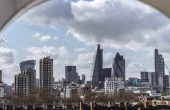
Last month London Mayor Sadiq Khan announced plans to close main streets in central London to cars and vans to make cycling and walking safer in the capital, maintaining the quieter roads we’ve seen during lockdown and easing pressure on public transport as people return to work.
These are significant changes: when they come into force, the scheme will give central London ‘some of the largest car-free zones in a capital city’. They follow announcements from other European cities including Milan, which will create 35km of new cycle routes and widen pavements after lockdown. From this month there will also be £50 grants for bicycle maintenance available in the UK.
Campaigners have been working towards changes like these for many years. They may be a long time coming, but they are a reason for hope. They show us that bold changes are possible and can be enacted swiftly.
What will be important is ensuring these plans consider the needs of all Londoners. Khan’s plans have been met with caution from those concerned about their potential impact on vulnerable groups and disabled people – inclusive conversations and careful design will be key here.
It is clear there is an urgent need to clean up London’s toxic air. In London more than 2 million people – including 400,000 children – live in areas which exceed air pollution limits. In Lewisham, Goldsmiths’ home borough, half of those people living in areas with the highest concentrations of NO2 and PM10 particulates come from deprived communities.
We know that better air quality will improve the respiratory health of millions. And we know that there has been a strong correlation between levels of pollution and rates of Covid-19 deaths. One study has shown that even a very small increase in particle pollution prior to the pandemic is linked to a 15% increase in deaths from the disease. Earlier action on air quality in our cities could have saved lives in this pandemic – the need for action couldn’t be clearer.
Today, World Environment Day, sees the official launch of the COP26 ‘Race to Zero’ campaign, bringing together businesses, cities, regions and investors committed to the goal of achieving net zero carbon emissions by 2050. This week’s launch has seen much discussion of the importance of a green, low-carbon recovery, which will be so important to rebuilding after the pandemic.
At Goldsmiths we have committed to becoming carbon neutral by 2025, and since the start of this academic year we’ve been working on our action plan to help us get to this goal. This work feels even more important in light of the current crisis and I’m looking forward to sharing details of our plans soon.
Many have spoken of the different cities we’ve seen in lockdown. There have been quieter roads, with more people tempted out to exercise by bike on previously congested roads. For some there has been a reconnection with nature and the outdoors, appreciating the animal life around us and our precious green spaces – gardens for those lucky enough to have one, and city parks for those lucky enough to live near one.
There are no opportunities in a public health crisis like this – the pandemic has taken an immense human toll. But there are important lessons to learn on how we move forward, how we choose to craft our recovery. Responding to the climate catastrophe must now have an even greater urgency, because it never went away. I hope that our glimpse of an alternative way of living in our cities will provide an impetus for the change we need to see and bring healthier futures for all of us.




